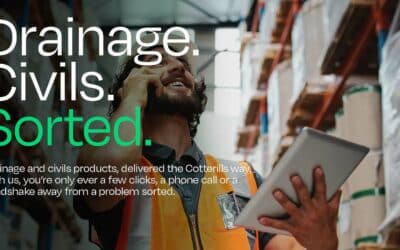YouGov, the research leader, has said it has plans to continue to recruit right across the UK to create new hubs in the North and beyond.
Amelia Brophy, its UK Country Manager, said they have come a long way as a result of the lockdown and resulting move to remote working, saying that the past year has “shown us as a business that we don’t have to be in our London office.”
It means that as the business continues to grow, it now plans to look at talent in the North and tap into a new talent pool that before may have lacked access to London.
Up until now, YouGov has had a small group based in Manchester, based in the city for the last few years. However, this team was purely Northern-dedicated and worked with the market researcher’s clients in the region.
Over the last year-and-a-half it’s moved to become a team that works across all YouGov’s clients, enabled by the revolution in ways of working which happened over the past year-and-a-half.
“We’re expanding our footprint in Manchester,” said Brophy, “and looking to bring in more researchers and account managers within the team there.
“We want to put the best people on our clients no matter where they are,” she added, and not “use geography as a barrier for ways of working.”
With the planned increase in people they will be looking at other areas they can have hubs, she confirmed, and since YouGov no longer feels like it needs to make people come to London, it plans to “tap into the talent pool that’s in the North.”
YouGov, she said, is quite “opportunistic” when it comes to recruitment – so will react depending on clients, talent, and the decisions of managers within a hub. “It’s up to the line managers to work out what works for them and then us as a business to be able to enable that,” she said.
Reaping the benefits
This has all been enabled by YouGov being able to move their business to remote “basically overnight,” and from there they’ve seen the benefits.
As well as demonstrating that research work can be conducted from anywhere as long as the digital setup is right, the move to remote will “put a different lens on what needs an in-person meeting,” she said, given that there’s now “a real desire to make those in-person contacts more meaningful.”
Now that professionals in the North can serve a client based anywhere, it’s an opportunity for drastic change, according to Brophy. One that will help them broaden the workforce, as they look at talent previously “shut out” by a range of factors, in particular geography.
It reduces the time spent travelling just to see clients and has proven to everyone the power of digital transformation for increasing efficiency, connecting people, and more.
And some of the improvements have been unexpected – including YouGov’s move to digitally enabled solutions like DocuSign and away from signed and scanned contracts.
“If you have to change because of something,” she said, “make sure you take the time to step back and look at what the other things that it touches are.”
What brands can do
One thing that has forced many marketers to change is the phasing out of third-party cookies, as privacy across websites becomes a fundamental part of operating online. It has upended the way that much of targeted advertising works – forcing marketing professionals to consider new ways to learn more about audiences online.
Individuals are becoming a lot more suspicious about giving away data, said Brophy. “There’s always a lot more brands can do to understand their consumers.”
It’s “game-changing” for a brand to understand their consumer in a new way, and market research enables that, in a way that circumvents issues with privacy and tracking. “Everyone opts in to join the [research] panel,” said Brophy. “It’s consent-based [and] we’re gathering the data with their full permission. Therefore it can be used confidently and robustly.”
It’s “good old-fashioned market research” which remains as a consistent solution – meaning “your insights are at lower risk,” she said.
Brophy said a number of new YouGov ventures were on offer to directly help advertisers, both in terms of learning about consumers’ overarching preferences, as well as their in-depth reactions.
YouGov Direct involves the use of a panel, shown adverts with the call to action live within them. This means, instead of relying on a verbal commitment that an ad’s driven their purchasing behaviour, it can be observed in action.
“Instead of us taking claim data, we’re seeing how many are actually going onto buy,” she said. Tracking between websites might be over, but there are ways “you can still collect that level of insight and data – you just have to be a lot more transparent.”
The key is this transparency – instead of crossing their fingers and hoping consumers will accept cookies without fully understanding, companies should be up-front. That, she said, “facilitates trust between the brand and the consumer, and helps to build advocates.”
“Geographic boundaries will disappear”
The COVID crisis has been hard for all involved, but it has not come without its opportunities. According to Amelia, there are new bonuses for businesses in the North and indeed across the UK. “We’ve shown we can do things without being in-person.”
For support services, agencies and consultancies in the North, she added, “geographic boundaries to business” should disappear, since the sphere in which they work has evolved from the local to the digital.
Nobody could have predicted the last 18 months, and the rapid changes in behaviour “as a marketer, you could only dream of.” Things won’t go back to normal now, she said.
“That gives us the opportunity to open things up to more people from different areas, and to different points of view.”














